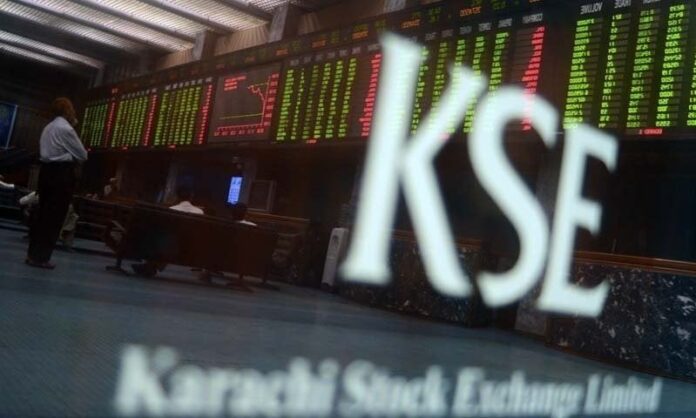The KSE-100 Index of the Pakistan Stock Exchange saw a significant downturn, dropping more than 1% to close below the 80,000 mark due to increased selling pressure. Initially showing gains with an intra-day peak of 80,971.96, the index reversed course as bearish sentiment took hold during the session. By the end of trading, the benchmark settled at 79,841.56, marking a decrease of 1.03% or 830.51 points.
Selling was notably strong across various sectors including cement, commercial banks, engineering, fertiliser, and oil and gas exploration companies, as well as other major players such as OMCs and refineries. Stocks of influential companies like OGDC, POL, PPL, PSO, HBL, MEBL, and NBP were among those that experienced declines.
The Pakistani equity market had been on a positive streak recently following the government’s announcement of no new taxes on capital markets in the budget and anticipation of an IMF deal aimed at bolstering economic stability.
In another development, Prime Minister Shehbaz Sharif declared his personal oversight over the government sector’s downsizing and rightsizing process, emphasizing zero tolerance for delays in implementation.
Elsewhere, Asian stocks held near their highest levels in two years on Wednesday, reflecting expectations of imminent US interest rate cuts. Meanwhile, the Pakistani rupee experienced a slight depreciation against the US dollar, settling at 278.51 in the inter-bank market.
Trading activity on the PSX showed a decrease in both volume and value compared to the previous session, with K-Electric Ltd, PIA Holding Company, and Unity Foods Ltd emerging as the most traded stocks. Out of the 440 companies traded, 153 saw gains, 241 recorded losses, and 46 remained unchanged.




